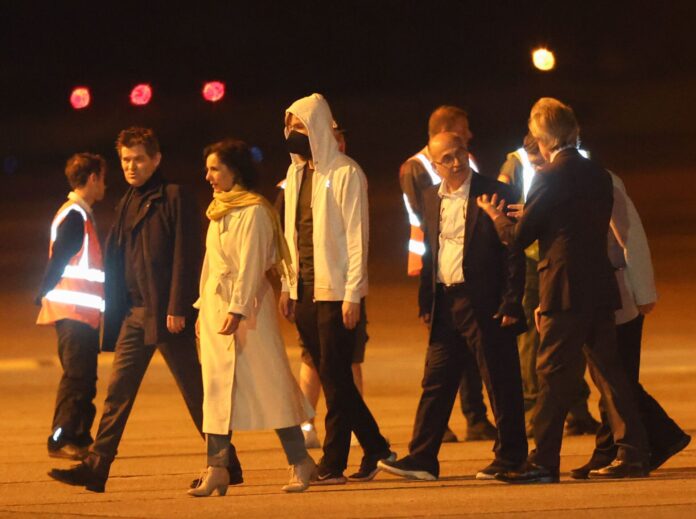Austrian Foreign Minister Alexander Schallenberg said he was “very relieved” that Kamran Ghaderi and Massud Mossaheb were being brought home after “years of arduous detention in Iran.”
Denmark’s foreign minister, Lars Løkke Rasmussen, said that he was “happy and relieved that a Danish citizen is on his way home to his family in Denmark after imprisonment in Iran.” He didn’t name the person, saying their identity was “a personal matter” and he couldn’t go into details.”
Schallenberg thanked the foreign ministers of Belgium and Oman for providing “valuable support,” without elaborating on what form it took. Løkke Rasmussen thanked Belgium and said that Oman ”played an important role.”
An Oman Royal Air Force Gulfstream IV, which had been on the ground in Tehran for several days, took off shortly before the announcement. Oman often serves an interlocutor between Iran and the West and brings released captives out of the Islamic Republic.
The releases also come after Oman’s Sultan Haitham bin Tariq visited Iran on his first trip there since becoming the Arab nation’s ruler in 2020.
Ghaderi is an Iranian-Austrian businessman who was arrested in 2016 and later sentenced to 10 years in prison for allegedly spying for the U.S., charges strongly rejected by his supporters. His family had criticized Austria for being silent on his case in recent years.
Mossaheb, also an Iranian-Austrian businessman, was arrested in 2019 and received a 10-year prison sentence after what Amnesty International called “a grossly unfair trial for vague national security offenses.” Amnesty had said Mossaheb suffered from heart failure and diabetes, making his imprisonment that much more dangerous for him.
Iranian state media and officials did not immediately acknowledge a release on Friday, which is part of the weekend in the Islamic Republic.
Last week, a prisoner exchange between Belgium and Iran saw an Iranian diplomat convicted of attempting to bomb exiles in France returning to Tehran while a visibly gaunt aid worker headed back to Brussels.
Iran has detained a number of foreigners and dual nationals over the years, accusing them of espionage or other state security offenses and sentencing them following secretive trials in which rights groups say they have been denied due process.
Critics have repeatedly accused Iran of using such prisoners as bargaining chips with the West.
Iran, facing Western sanctions over its rapidly advancing nuclear program, has experienced protests in recent months and economic strain. However, it also reached a detente with Saudi Arabia through Chinese mediation, and the International Atomic Energy Agency dropped two inquiries into the country’s nuclear program.
Source: France24

